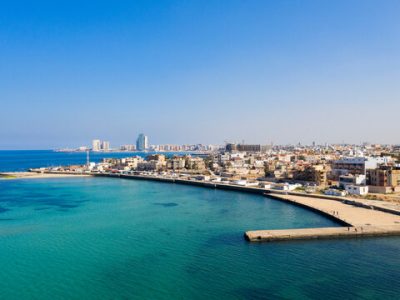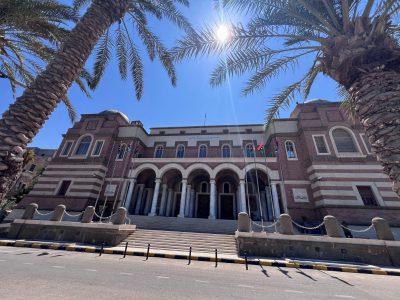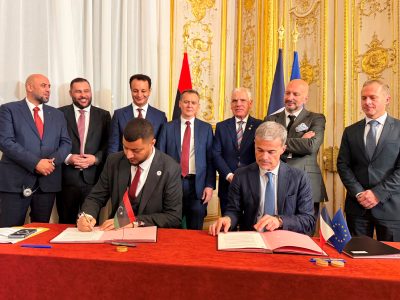Energy Economics: Libya’s Crude Conundrum
Libya sits atop one of the most enviable oil reserves in the world. Home to Africa’s largest proven crude oil reserves, the North African nation is renowned for its high-quality, light “sweet” crude oil that is low in sulfur and easy to refine. This type of oil is highly sought after on the global market, as it can be sold at a premium and contribute significantly to national revenues. Yet, paradoxically, Libya is grappling with fuel shortages, power outages, and a domestic energy crisis that underscores a puzzling disconnect between resource wealth and energy security.
This contradiction lies at the heart of Libya’s energy conundrum: it exports vast quantities of unrefined crude oil to global markets but significantly lacks refineries for domestic use. The country remains unable to adequately supply its own population with refined petroleum, relying on imports for products necessary to run vehicles, generate electricity, or even provide consistent power to hospitals and water facilities. For a nation so rich in oil, Libya is surprisingly fuel-poor.
Exporting Wealth, Importing Dependence
Libya’s light sweet crude is a darling of international markets, particularly in Europe, due to its easy processing and lower environmental impact when burned. The petroleum sector is the driving force in the Libyan economy, representing over 95% of the country’s export revenues. But instead of refining the oil domestically to meet internal fuel demand, Libya exports the bulk of its crude and spends a significant portion of its earnings importing refined petroleum products like gasoline, diesel, and jet fuel.
This dependency on fuel imports has proven costly and strategically vulnerable. Supply disruptions, often linked to political instability or conflicts, have led to long lines at fuel stations, blackouts lasting several hours or even days, and frequent shutdowns of critical services. The situation has become so dire at times that cities rich in oil infrastructure find themselves unable to generate enough electricity to keep streetlights on or water pumps running. Libya’s reliance on the outside world puts it at a disadvantage despite its resource-rich land.
Infrastructure in Disrepair
Libya’s refining capabilities have not kept pace with its export ambitions. The country has five main oil refineries, the largest of which is the Zawiya Refinery. However, years of neglect, poor maintenance, sabotage, and war-related damage have significantly impacted the functionality of these facilities, even causing some to shut down completely. Just last year, for instance, the state-owned National Oil Corporation (NOC) declared force majeure after the refinery was severely damaged from nearby gunfights. The refining infrastructure that does remain operational is insufficient to meet domestic fuel demand.
Attempts to modernize and expand Libya’s refining sector have largely stalled due to ongoing political fragmentation and insecurity. The country is split between rival administrations, each vying for control of oil revenue, and investment in critical infrastructure remains less profitable for key players. Corruption, mismanagement, and a lack of coherent national energy policy have all complicated efforts to boost local refining.
The Economic and Strategic Costs
The economic inefficiency of exporting crude oil and importing refined fuel is staggering. Libya loses value at both ends of the transaction: it sells crude oil at market prices but often buys back petroleum products at a markup, as they’re refined and ready for practical use. In effect, Libya is exporting its wealth and then buying it back at a premium.
Libya has also engaged in crude-for-fuel swap agreements, where it exports crude oil and receives refined products in return. Though these deals are by and large crucial, they have highlighted a more pressing concern: smuggling. The unfortunate reality on the ground is that much of the imported fuel is stolen and sold on the black market, effectively embezzling billions of dollars that would be injected into Libya’s economy and energy infrastructure.
These methods undermine Libya’s national energy sovereignty. During times of global fuel shortages or geopolitical tensions, Libya finds itself vulnerable to supply shocks. For example, disruptions in neighboring countries or global markets can delay fuel shipments, leaving Libyan consumers in the dark. Such dependency is especially problematic for critical infrastructure – hospitals, water desalination plants, electricity grids – that require consistent fuel supplies to operate.
A Path Forward?
Solving Libya’s crude conundrum will require more than just technical fixes. It demands political reconciliation, governance reform, and a long-term vision for domestic energy security. Rehabilitating existing refineries and building new ones will take years and billions of dollars in investment, but without such infrastructure, Libya will remain a paradox: a country drowning in oil but thirsting for fuel.
There are some hopeful suggestions. One possibility is the creation of a private energy authority that isn’t controlled by the state, with a mandate to oversee refining projects and ensure fair distribution of energy resources. Another thought would be summoning a major foreign actor to mass develop the infrastructure needed to sustain domestic energy supply within Libya in exchange for its premium crude. China is already doing something similar in Nigeria, undergoing huge construction projects in exchange for oil. This would be far more beneficial to Libya’s long-term energy security than today’s current crude-for-fuel swap arrangement which focuses more on the short term. Western leaders should take note.
What’s clear is that Libya must stop viewing crude oil solely as a cash crop for export and start treating it as a national asset that can power its own development. Until then, Libya’s oil wealth will remain a double-edged sword – rich in potential, but poor in practice.




